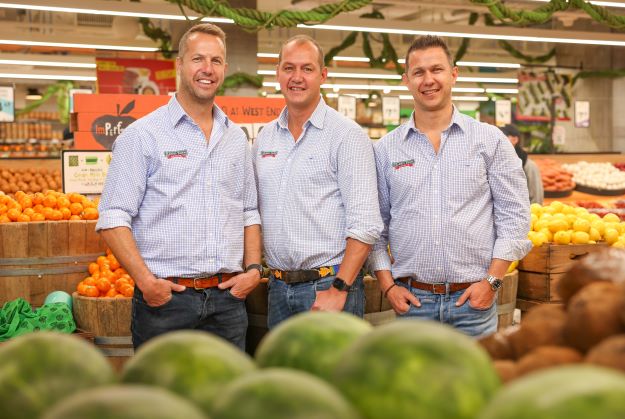Harris Farm Markets is setting out to prove that great food doesn’t have to literally cost the earth.
As the sky-high prices for vegetables in Australia tumble by 60, 70% or even up to 90% as the effects of the floods subsides, Harris Farm Markets Co-CEO Tristan Harris predicts further savings over Spring due to the company’s commitment to ‘Best in Region by Best in Season’.
“This is where seizing what’s in season, and local, shows up in real savings at the cash register,” he says.
“Lettuce for example, has gone from $10 to $3, representing a 70% decease; silverbeet has gone from $8 to $3 meaning it is over 60% lower; beans from $40 to $3, over 90% lower; corn has dropped from $4 to $1.50, a saving of over 60% and broccoli has gone from $12 to $3, representing a 75% saving. This is all a result of Harris Farm championing what’s in season, and it’s the best way to do business,” he says.
Mr Harris says there is also value in mushrooms, herbs, strawberries and sweet delight tomatoes, with flood impacted areas such as the Sydney basin now flush with great quality crops.
Seize the season
Harris Farm Markets’ guiding principle is that when nature provides more, customers will pay less.
“When it’s in season, we seize it; we give a fair go to those who grow, and for that wonderful range of bumpy veg (Imperfect Picks), we bump down the price. This has always been our commitment, it’s not new, but it is important we educate people, because the providence of produce matters,” Mr Harris said, adding that transparency is important.
“In an increasingly hyper-sensitive price-driven economy, we want to show the ‘how’ and ‘why’ behind our products and their pricing, and to encourage customers to embrace value, with values.”
Supporting suppliers
Mr Harris says it’s time to support growers who have had a really tough time.
“There’s a difference between buying an avocado from Harris Farm Markets and buying one anywhere else. It’s the same difference in buying eggs… The difference is that Harris Farm Markets maintains a very real commitment to the farmers and producers behind our shelves of fruit and veg, and a promise that low costs aren’t provided at all cost, because ultimately that cost will be to the farmer,” he says.
“Treating farmers fairly is a no-brainer for us. Our suppliers aren’t strangers – they’re our partners. We expect a lot from them, so a fair go is the least we owe.”
Value with values
The retailer further supports its suppliers through it’s ‘total crop solution’. Rather than buying just the largest or prettiest produce, it buys the lot.
“This way our farmers don’t get stuck with half a harvest that they can’t sell,” Mr Harris says. “Yes, it makes it harder for us to manage but it’s the right thing to do, by farmers and by the environment.”
Harris Farm Markets has continued to champion ethical and sustainable practices in recent years. The retailer has not sold a cage chicken egg in the last five years; its Imperfect Picks range has saved more than 28 million kilograms of fruit and vegetables from going to landfill in the past six years; and it gave away 1000 boxes of fruit and veg a day to vulnerable people who couldn’t come to its shops during the pandemic.
This year’s inflationary pressures has seen Harris Farm continue to donate pallets of fresh vegies every week to Ignite store in western Sydney, and pallets of vegies to Ukrainian refugees. During the floods in the Northern Rivers, it also donated truck loads of vegies to the people of Mullumbimby and Lismore and delivered fresh fruit to Brisbane’s flood army.
“Being a business doesn’t stop us being human,” Mr Harris says. “This is what ‘value with values’ is all about.”





